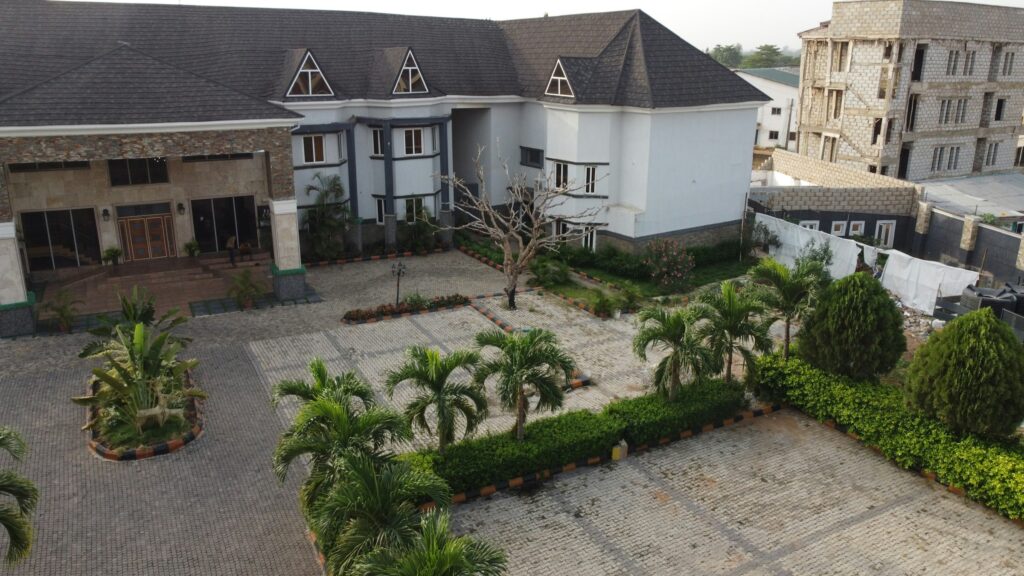Learn about investment options for Africans in the diaspora who want to invest in Nigeria and secure their future.

According to the World Bank⬈, remittances from Africans abroad to Nigeria were up to almost $20 billion in 2024. The total amount they sent home was greater than foreign direct investment and aid. Sadly, most of the money they send home only sustains day-to-day needs. That is not sustainable.
What if a good portion of that money is invested long-term? It will provide consistent passive income and financial security. What is holding African investors back from investing in Nigeria? A lack of information about trusted partners and reliable investment platforms could be an issue.
Follow along in this SimplVest guide as we explore ten ways Africans abroad can invest in Nigeria.
1. Build a Solid Base With Real Estate in Nigeria
You can buy undeveloped land in growth corridors like Epe or Ibeju-Lekki, as well as other areas in Nigeria. IFT Realty LTD⬈, a property development company based in New York, says property appreciation in these areas has reached 25% to 35% in recent years since 2020. Some investors buy Nigerian real estate and resell appreciated land, making huge profits along the way. Off-plan property investment allows you to buy early at a discount.

Buying real estate in Nigeria, especially in prime districts such as Victoria Island or Abuja, gives you high rental yields. If you choose this investment option, verify land titles with the state registry. And work with NIESV-registered professionals (NIESV) before purchase.
2. Invest in Nigeria Through REITs and crowdfunding
If owning and managing properties is too much work for you, consider Real Estate Investment Trusts ⬈ on the Nigerian Exchange. REITs pool funds together, buy income-generating properties, and pay partners dividends annually. With real estate crowdfunding platforms, you can invest in residential or even commercial projects. This option allows you to spread your capital across multiple assets.
You benefit from the diversification and limit upfront costs. You don’t need on-site oversight for this investment option.
3. Tap into Agriculture
Nigeria has a lot of unused arable land, which can be used for mechanized agriculture. This means that agriculture is an untapped investment option to consider. When you invest in Nigeria’s agriculture, you kill two birds with one stone. You earn returns and support Nigeria’s food supply chains at the same time.
There are agro-tech platforms that connect diaspora investors with local farms. They manage land, insurance, and produce distribution for you. Thrive Agric and Farmcrowdy ⬈ are examples. They gather resources from investors in Africa and manage mechanised farming projects.
These modern cooperatives monitor crops using satellite data. Reduce risk while you track yields through apps and enjoy quarterly profit payouts.
4. Government Bonds and Diaspora Fund Options
Government bonds offer you reliable interest payments and principal protection. The savings bond of the Federal Government of Nigeria ⬈ is easily accessible. From ₦5,000 and yields around 15% for three-year tenors. These bonds allow you to invest your capital into Nigerian infrastructure and earn steady interest.
You can buy these bonds from digital platforms, but make sure you do so through a verified issuer.
5. Grow Your Portfolio on the Nigerian Stock Market
With the Nigerian Exchange (NGX)⬈, you can earn robust returns as an investor. Brokers like Trove and Bamboo make it even easier. You can buy and sell Nigerian equities, ETFs, and government securities from anywhere in the world. Some of these platforms give access to international markets, reducing currency risk.
A good strategy for investors in Africa is to diversify your portfolio into blue-chip banks, telecoms, or consumer goods companies that drive local demand.
6. Mutual Fund Investment
Mutual funds are professionally managed investment schemes that pool money from many investors to create a diversified portfolio. If you’re looking to invest in Nigeria, mutual funds are another good investment option. Early this year, 2025, some Nigerian balanced funds yielded over 67% returns.
7. Venture into Startups as Investors in Africa

Nigeria’s technological ecosystem is booming in Africa. Investing in early-stage tech ventures can yield exponential rewards. Outfits such as the African Business Angel Network (ABAN) ⬈ connect investors to startups with potential. Apart from the financial gains, supporting startups boosts the economy and creates employment opportunities at home.
8. Open Diaspora Fund Accounts and Fixed Deposits
FirstBank, Ecobank, and Fidelity Bank offer diaspora fund products and multicurrency accounts. Investors who want to invest in Africa can thus hold Naira, US Dollars, British pounds, or euros in dedicated domiciliary or savings accounts. Making it easy to carry out transactions and business. Fidelity Bank offers a Diaspora Investment Fund account ⬈ with reasonable interest rates.
These accounts simplify repatriation of funds and let you pay local bills online.
9. Launch a Business in Nigeria
As an entrepreneur, you can register a company through the Corporate Affairs Commission in Nigeria and have full ownership. All you need is a minimum investment capital and approval from the NIPC for foreign participation. Once your business is registered, you can access government incentives, tax deductions, and sector-specific grants. Industries like renewable energy and fast-moving consumer goods are great options for diaspora entrepreneurs who are ready to invest. Read about Seyi and Seun Abolaji, two brothers, formerly living in the UK, who built a thriving multi-million naira juice business in Nigeria.
10. Invest in Infrastructure and Projects in Nigeria
The National Housing Programme (NHP) via the Federal Mortgage Bank of Nigeria invites monthly funders to finance affordable homes. To invest, join the Diaspora National Housing Fund. Your payments go directly into real estate projects in Nigeria, projects addressing the housing deficit. You stand to gain cheaper house pricing, priority allocations, and long-term capital appreciation.
Conclusion
Sending money home is not bad in itself, but one must consider investment options for long-term benefits. Choose an investment option that fits you and invest in Nigeria. Be it buying Nigerian real estate, bonds, stocks, or startups, you turn remittances into wealth and set up your garage for generations. You’ll also play a role in investing in Africa and boosting Nigeria’s economy.
Ready to invest in Nigeria? Subscribe to the SimplyVest Newsletter for financial tips to guide you.












